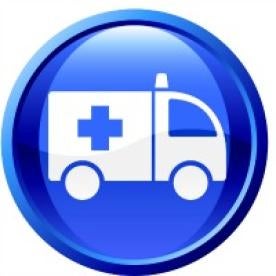The Department of Health and Human Services’ Office of Inspector General (OIG) issued Advisory Opinion 15-13 on Oct. 21, 2015. The Opinion reviews a proposed arrangement by a rural integrated health system (the System) to provide free van shuttle services between certain medical facilities in the System and a central drop-off/pick-up location. OIG concluded that the transportation services presented a minimal risk of fraud and abuse based on several distinguishing factors.
Three System entities requested the opinion, including a regional tertiary/quaternary care medical center, a community hospital ten miles from the medical center, and a multi-specialty physician practice. Additional System components impacted by the arrangement included a second community hospital located 16 miles from the medical center and an ambulatory surgery center. With the exception of several physicians at the second community hospital who lease space on that hospital’s campus, all medical center, ASC and community hospital physicians are bona fide System employees. The System proposed two shuttle routes that would transport patients between the medical center, both community hospitals, the ASC and a central drop-off/pick-up location.
In concluding that the arrangement posed minimal fraud and abuse risk, the OIG relied on the following representations by the System:
-
Shuttle service would be provided to all patients regardless of their health insurance status or ability to pay, and the availability of the service would not be conditioned on the patient’s use of specific items or services from the System;
-
Free transportation services would not include air, luxury, or ambulance-level transportation;
-
Drivers would be paid on a salaried basis without regard to the number of persons or patients transported;
-
Services would be offered locally within the System’s primary service area;
-
The System would not publicly market or advertise the transportation services;
-
The System would bear all costs of providing the transportation services and would not shift the burden of those costs onto Medicare or other payers or individuals;
-
Any benefit to non-employed physicians of the free patient transportation would be incidental; and
-
Local public transportation is limited or unavailable to several System facilities.
Notably, the OIG’s analysis mirrors several requirements of the newly proposed transportation services safe harbor to the anti-kickback statute, originally published for comment in October 2014. The OIG took pains to note that its advisory opinion did not rest on those requirements as that safe harbor has not been finalized; however, several factors on which the OIG did focus—such as the provision of services to established patients only, the limited “local” radius of the transportation services, and the absence of evidence suggesting the arrangement contemplated past or anticipated volume or value of Federal health care program business—shed light on how the agency likely would analyze similar arrangements under a future transportation safe harbor.


 i
i


